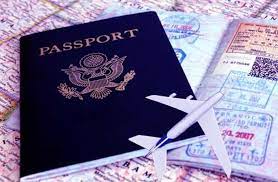Are you ready to embark on an incredible journey through the captivating land of India? From its rich cultural heritage to breathtaking landscapes, this country has so much to offer. However, navigating through the visa extension process can be a daunting task for many travelers. Fret not! In this comprehensive guide, we have compiled all the essential information and insider tips you need to know in order to extend your Indian visa hassle-free. So buckle up and get ready to unravel the secrets of extending your stay in this enchanting country without any worries or stress!
Introduction: Why Extending Your Indian Visa is Important
India is a diverse and culturally rich country that attracts millions of tourists each year. Whether you are visiting for leisure, business, or to reconnect with your roots, there is always something new and exciting to dscover in this vibrant nation.
If you are planning on staying in India for an extended period of time, it is essential to understand the process of extending your visa. Many travelers underestimate the importance of this step and end up facing unnecessary difficulties during their stay.
In this section, we will discuss why extending your Indian visa is crucial and how it can benefit you in the long run.
- Avoid Legal Consequences:
The most important reason for extending your Indian visa is to avoid any legal consequences. According to the Foreigners Division of India’s Ministry of Home Affairs, overstaying without a valid visa can lead to serious penalties such as fines, deportation, and even imprisonment.
It may also result in being blacklisted from entering India again in the future. These consequences not only disrupt your travel plans but can also have a negative impact on your personal and professional life.
- Continue Your Stay Without Disruption:
Extending your Indian visa allows you to continue your stay without any disruption or interruption. It gives you more time to explore all that India has to offer without worrying about leaving before your visa expires.
Moreover, if unforeseen circumstances arise during your trip that require a longer stay in India, having an extended visa will provide peace of mind knowing Indian Visa for Azerbaijan Citizens
Understanding the different types of Indian Visas
India is a diverse and culturally-rich country, attracting millions of tourists from all around the world each year. Whether you are planning a short visit or a long-term stay in India, understanding the different types of Indian visas is crucial to ensure a hassle-free experience.
Tourist Visa:
The most common type of visa for travelers visiting India is the Tourist Visa. This visa allows individuals to enter and stay in India for leisure or recreational purposes for a maximum period of 180 days. It can be obtained either through an eVisa or by applying at an Indian embassy or consulate in your home country.
Business Visa:
For those traveling to India for business-related activities such as meetings, conferences, or trade fairs, a Business Visa is required. This visa permits stays up to 180 days and can be extended further if necessary.
Student Visa:
Students who wish to study in India can apply for a Student Visa. This visa allows students to enroll in full-time education programs at recognized institutions in India and can be extended up to five years. Applicans must provide proof of enrollment from the institution they will be attending.
Employment Visa:
Foreign nationals seeking employment opportunities in India must obtain an Employment Visa before entering the country. This visa allows individuals to work in India for up to one year and can be extended further depending on their employment contract.
Medical Visa:
Individuals seeking medical treatment in India must apply for a Medical Visa. This visa permits entry into the country for medical purposes and can be valid up

